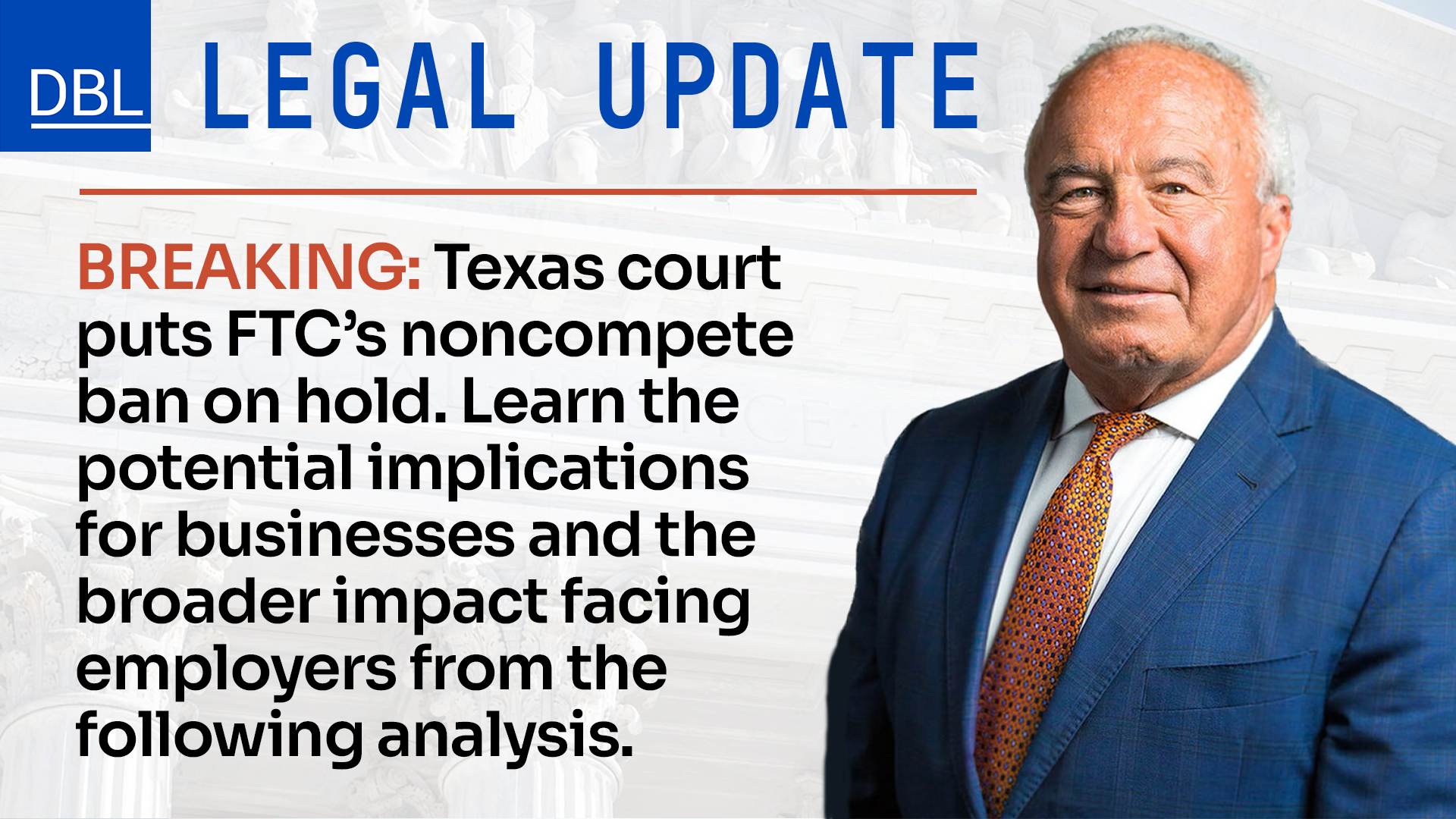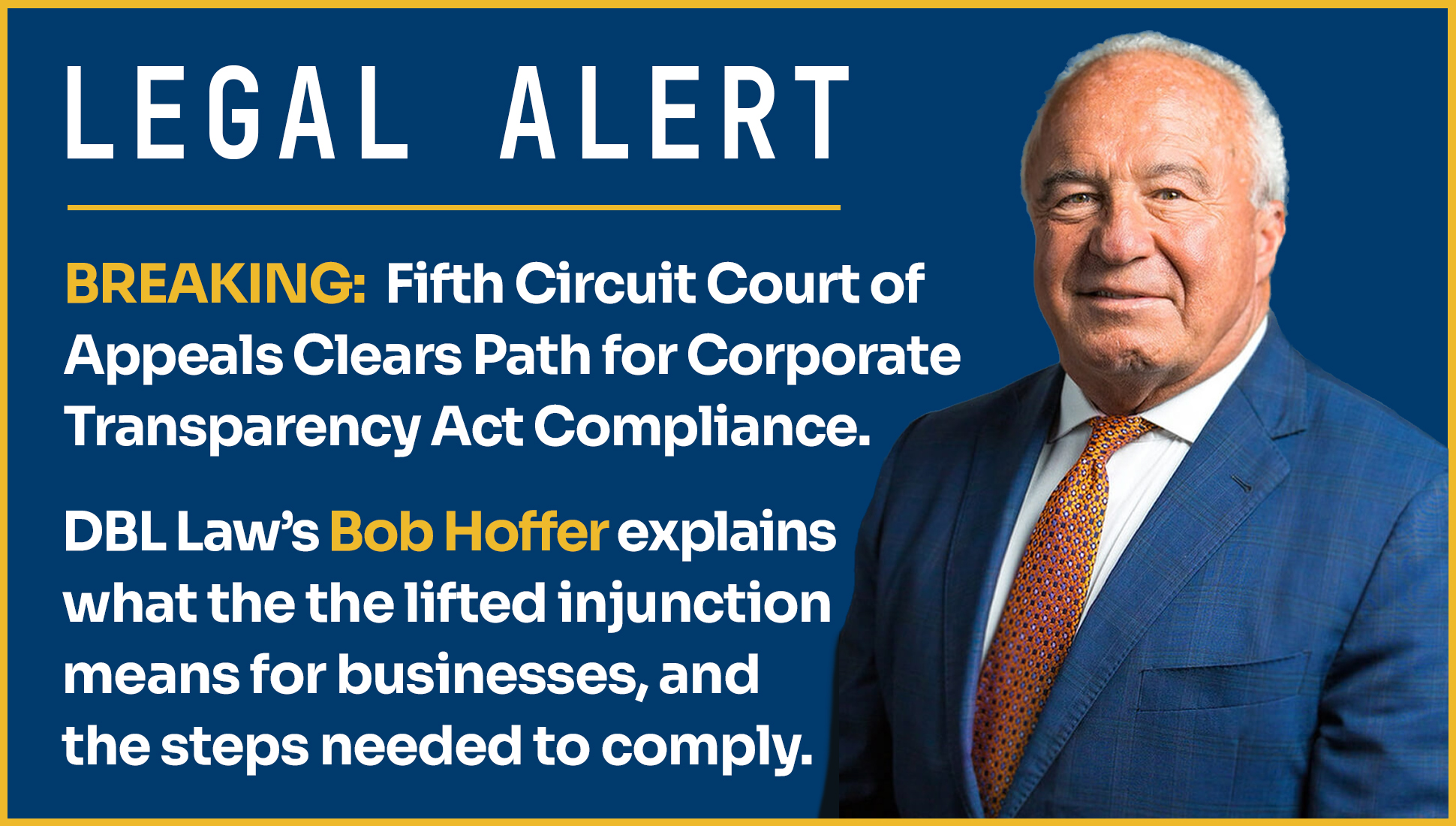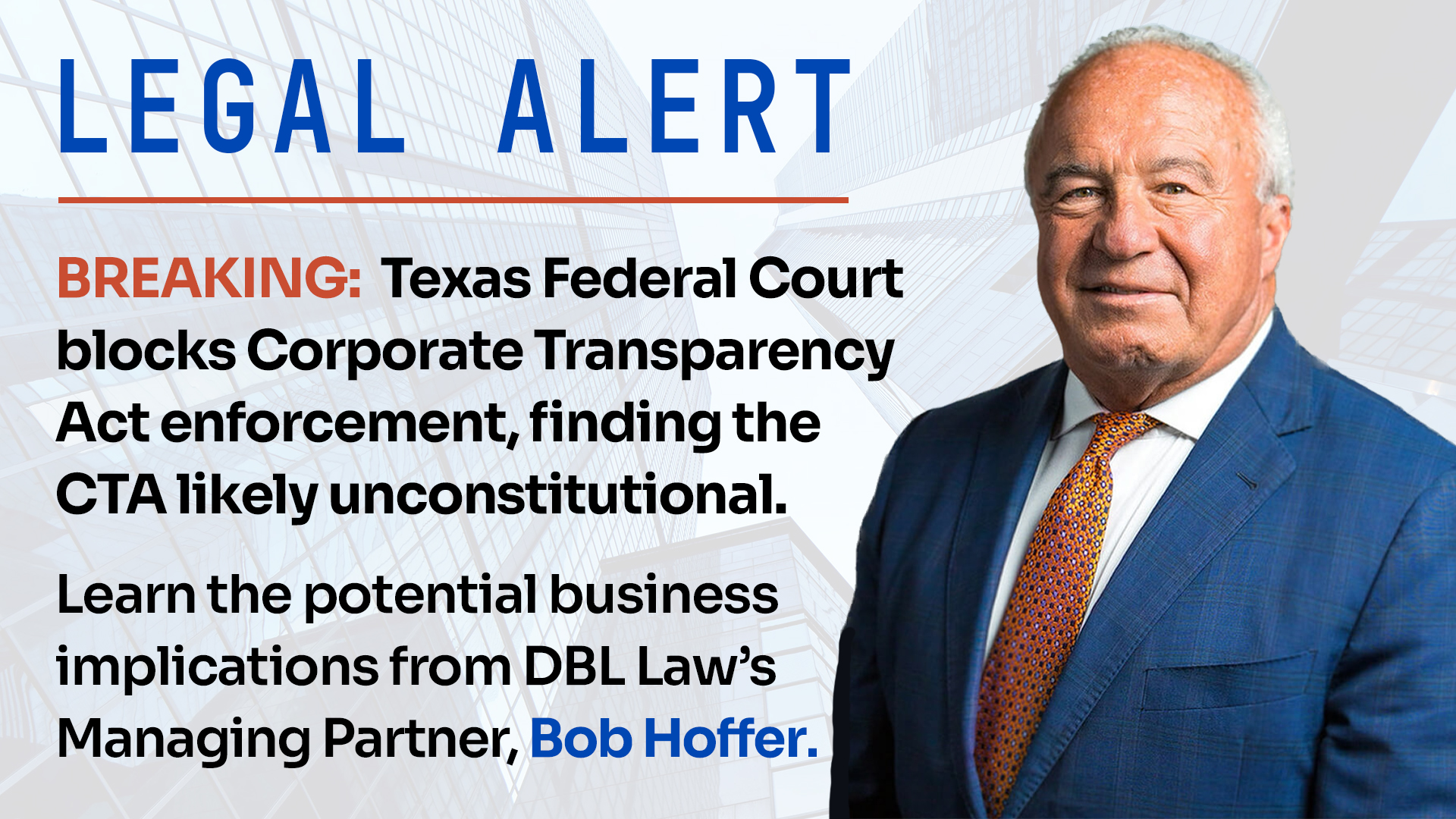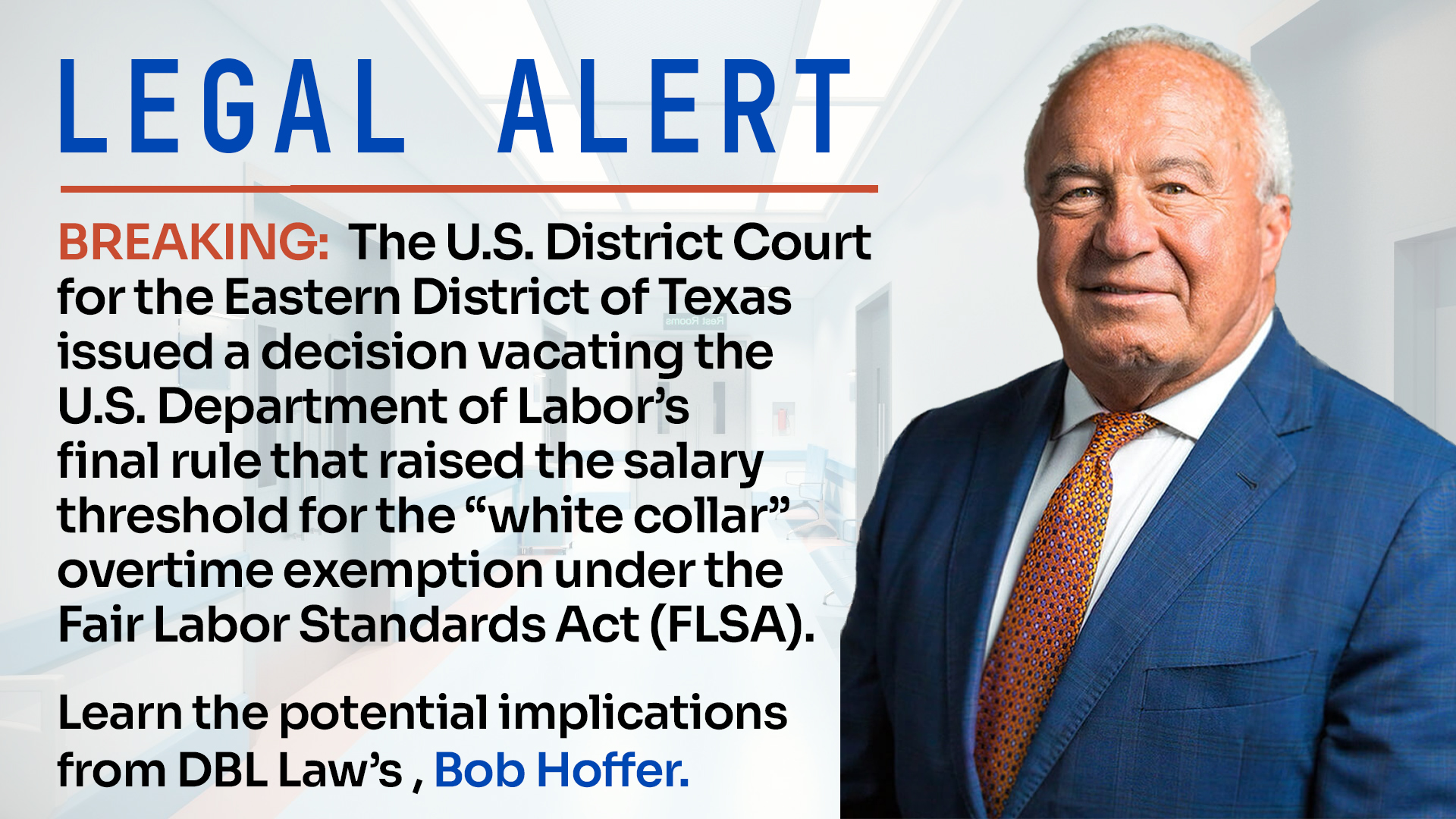By Bob Hoffer, DBL Law
A recent ruling from the U.S. District Court for the Northern District of Texas has put a temporary hold on the Federal Trade Commission’s (FTC) ban on noncompete agreements, originally set to take effect on September 4, 2024. This decision arose from a lawsuit filed by Ryan LLC, a tax services firm based in Dallas, which challenged the FTC’s authority to enforce the ban.
Background and Ruling
The FTC’s proposed rule, introduced in April, aimed to prohibit noncompete clauses for nearly all U.S. workers, citing that such agreements stifle competition and limit economic freedom. However, Judge Ada Brown’s ruling suggests that the plaintiffs, including Ryan LLC, are likely to succeed on the merits of their case. Judge Brown highlighted that the FTC may have overstepped its statutory authority by declaring all noncompetes unfair and anticompetitive.
Implications for Employers
This ruling postpones the implementation of the noncompete ban for the plaintiffs, pending a final decision expected by August 30, 2024. Ryan LLC, supported by several business organizations, argued that the ban would cause “serious and irreparable injuries” to businesses by exposing confidential information and enabling competitors to poach trained employees.
The Broader Business Impact
The use of noncompete agreements is widespread, affecting an estimated 30 million American workers. These agreements prevent employees from joining or starting competing businesses for a specified period after leaving a company. The court’s decision is seen as a significant step towards invalidating a rule that many employers argue would burden their operations.
Ongoing Legal Challenges
Other businesses across the country have joined in opposition to the FTC’s rule. For instance, ATS Tree Services, a small Pennsylvania-based company, has a similar case scheduled for a hearing on July 10. The outcome of these legal challenges could have far-reaching consequences for the future of noncompete agreements in the United States.
Conclusion
While the FTC argues that noncompetes hinder workers’ freedom and economic liberty, many businesses believe these agreements are essential for protecting their interests and maintaining a competitive edge. As the legal battles continue, employers should stay informed about developments and consider how potential changes might impact their business practices.
For further updates and analysis on this evolving issue, stay tuned to DBL Law’s blog.
About the Author
Bob Hoffer is a seasoned attorney at DBL Law, specializing in employment law. He provides expert legal counsel to businesses navigating complex regulatory landscapes.





